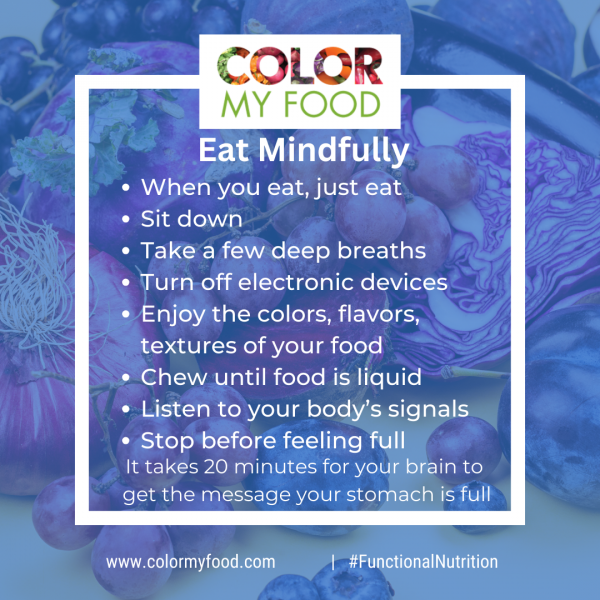The best food in the world is no good if you cannot digest it.
Digestion is a gateway to all aspects of your health. It provides the nutrients required by all the cells of your body. And your gastrointestinal tract is connected to every major system. Knowing how to support your digestive function can have a vital role in your overall health.
Did you know that digestion starts in your brain before you begin to eat? Your brain is the conductor of an amazing orchestra of digestive processes that instructs:
- mouth – produce saliva (contains enzyme amylase that start to break down carbs)
- stomach – produce stomach acid (breaks down protein in amino acids)
- pancreas – release enzymes (break down food into nutrients)
- gall bladder – release bile (break down fats into essential fatty acids)
- small intestine – absorb nutrients into blood stream to transport throughout the body
Did you know that bloating, gas, constipation, heartburn are signs of digestive distress? Digestive dysfunction causes
- carbs to ferment
- proteins to putrefy
- fats to rancidify
What to do?
Eat mindfully
In today’s fast-paced world, it’s easy to multi-task while eating, rush through meals, or eat on the go. But digestion works best when your body is in a parasympathetic (“rest to digest”) state. Take a few deep breaths. Pause a minute or two before digging in your fork. Notice your food – the color, texture, the aroma. Eating mindfully makes it easier for your digestive system to do its job.
Chew thoroughly
How many times do you chew your food? In general, chew dense foods 20 – 25 times and softer foods 5-10 times before swallowing. The better you chew your food, the better your body absorbs nutrients. Your salive releases essential enzymes which start the breakdown of your food. It helps buffer acids, convert substances vital for healthy gut bacteria, reduce inflammation, stimulate your immune system, and promote healthy teeth and gums. Thorough chewing reduces bloating, gas, and constipation. Also, research has shown that chewing your food more leads to eating less. Reduced intake leads to weight loss.
Incorporate fiber-rich foods daily
Dietary fiber has a crucial role in maintaining a healthy digestive system. It feeds beneficial gut bacteria and promotes regular bowel movements to remove waste from your body. To increase your fiber intake, include plenty of leafy greens, cruciferous and rainbow vegetables, whole grains, beans, and nuts in your lifestyle. Start by gradually adding these foods to your meals to avoid any sudden changes that may cause digestive discomfort.
Manage stress
Stress has a significant impact on digestion. When you are stressed, your body enters a “fight or flight” response, diverting energy away from digestion. Chronic stress can lead to digestive issues such as bloating, indigestion, and changes in bowel movements. To improve digestion, incorporate stress-reducing activities into your routine. Breathe mindfully, practice gratitude or meditation, and make time for regular exercise (walking counts!), relaxation and self-care.
Bonus Tip: Fermented foods aid digestion
Add probiotic-rich foods into your routine. Probiotics are live bacteria that can help restore and maintain a healthy balance in your gut microbiome. They can aid digestion and support overall gut health. Foods like yogurt, kefir, sauerkraut, and kimchi are excellent natural sources of probiotics.
Which tip will you start with today to build into a daily habit?



